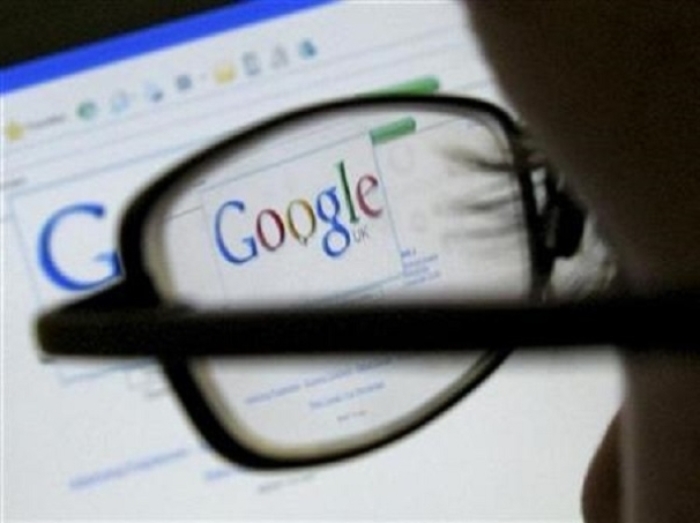Fake News: Is Religious Liberty at Stake?

As the world's largest web companies are being pressured to crackdown on websites that produce "fake news," there are growing concerns that efforts to censor what is deemed to be fake news could have a negative impact on religious news websites and sites that report from a conservative or biblical perspective.
The term fake news has been circulated by the media and Hillary Clinton following her defeat to President-elect Donald Trump in the Nov. 8 presidential election, with many accusing so-called pro-Trump fake news sites of having a decisive impact on the outcome of the election.
Just days after the election, Google and Facebook announced that they would take concrete action to cut off fake news websites from their ad networks and revenues.
Google said it would ban websites that produce fake news from using its AdSense network, which is a vital source of revenue for many news organizations. Meanwhile, Facebook made changes to its Facebook Audience Network policy to ensure that no advertisements will be displayed on websites that produce fake or misleading news.
Although most people would agree that steps need to be taken to curb the flow and influence of fake news on the internet, some are warning Google, Facebook and other tech giants to be cautious in how they go about censoring fake news.
Jeff Hunt, the director of the Centennial Institute at Colorado Christian University and founder of one of Colorado's largest conservative advertising agencies, Avinova Media Group, told The Christian Post what the changes Google and Facebook made in their policies actually mean.
"Any website that wants to host Google advertising has to be approved and go through an approval process to join what is called their AdSense network. You are typically banned from joining the AdSense network if the content on your website is pornographic or violent," Hunt, who is also CCU's vice president of public policy, said. "They won't allow banner ads to run on those types of websites. What they are now adding is this notion of fake news."
"So, you recognize that is a worthy cause and it is good that they are trying to do that," Hunt continued. "The challenge that they are going to run up against, especially when it comes to religious issues is what is fake news, especially within the religious community."
Hunt explained that different people have different views about religion and the truth of God.
"If we believe that Jesus Christ is the Son of God, therefore is God Himself, and Google does not believe that Jesus Christ is the Son of God, are Christian blogs now fake news?" Hunt asked. "They don't really get into how they are going to determine what is fake news. We would look at other religions as having information that doesn't line up with our definition of truth. As they kind of embark on this effort to eliminate fake news, they have to be very careful about what they determine within religious communities would fall under categories of fake news."
There are many different aspects within religion that are contested and debated. Even within Christianity, Christians argue back and forth about minor and major theological differences. Hunt wonders if websites that report on differing and controversial views of religion will be deemed to be websites that promote fake views.
"We believe things about the Bible, about the flood, about Noah, about the End Times and all that stuff. Somebody who is not a believer in that would deem that fake news or fake information," Hunt said. "They have got a mountain to climb when it comes to determining how they are going to deal with religious content. But for the content sites that are just purely propagating fake news to generate revenue, I think that is good that they are trying to figure out a way to stop those. But they have to be careful when it comes to religious websites."

Hunt does not believe that Google algorithms will adequately censor fake news to ensure that religious content does not get censored. He believes that ultimately, it will have to fall to humans to determine what is and is not fake news. However, he warned that every person has his or her own biases.
"They are going to have to have somebody that understands that just because you don't agree with someone's religious position, it doesn't make it OK to deem their website fake news and therefore, shut down ad revenue," he said. "I think this is a big problem that the Left makes. They kind of bet on this idea that religion is going away in the world."
"I grew up public educated, where religion was scoffed at. If that carries over into this area of fake news where they are going to ban advertising on religious websites because they deem it as fake news, they are missing out on how a majority of the world communicates, where religion is deeply important, debated and discussed," Hunt continued.
"There is news within religions. There is news within the Catholic Church, evangelical, the Jewish community the Muslim community. They have got to be careful that they don't deem religion that they disagree with as fake news and therefore penalize the vast majority of the populations of the world."
Rob Bluey, the vice president of publishing at The Heritage Foundation and editor in chief of The Daily Signal, told CP that liberals have in the past displayed a double standard in their attitude toward fake news. He explained how liberals claimed last year's undercover Planned Parenthood videos were doctored and faked, but never considered Dan Rather's false reporting in 2004 on President George W. Bush's service in the Air National Guard to be "fake news."
"The concern that you have, particularly in these tech companies, which are located in a very liberal area of Silicon Valley, is will you be able to get the diversity of opinion where you are catching fake news but you are not flagging other conservative sites or news about religion that somebody may not agree with," Bluey said.
"The thing that concerns me most, as we saw in the case of Facebook, are concerns that surfaced about whether or not they were restricting conservative content, and I think Google has come under fire for this as well."
Hunt warned that Google and Facebook must have an appeals process by which news organizations can prove that they are not a fake news website, adding that many on the Left have already shown that they will try and gang up against conservative organizations and pressure social media companies to censor them. He pointed to YouTube's censoring of videos produced by Prager University.
Most recently, YouTube censored a video of a pro-Israel Muslim explaining that his visit to Israel de-radicalized him. The Google-owned video sharing site considered that to be "hate speech."
"Prager University has run into an algorithm problem and YouTube is owned by Google, where Google is getting a number of complaints by the Left about a particular video and they are automatically shutting it down without reviewing the content of it. Prager University is having to go through a pretty arduous appeals process," Hunt explained.
"The Left is absolutely trying to shut down content and websites like Prager University, not because it is fake news or because it is actual hate speech or anything like that, but simply because they don't agree with the content of it."




























